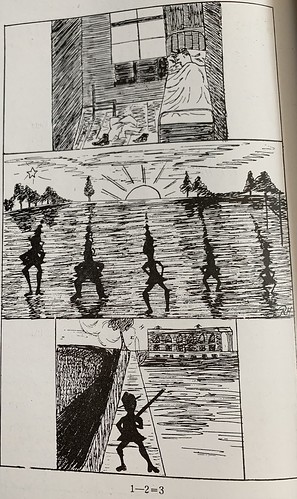Evolving Student Life during the War
Temporary End of the Rat System
Something well remembered and perhaps long dreaded by many Episcopal alumni was the “Rat System” at Episcopal. Disbanded only in late 20th Century, the Rat System built a systematic way of hazing freshmen. However, according to the Chronicle, that called “the new boys of 1916-1917” the “first to be exempt [Sic] from coercion by the older boys,” it appeared that the school administration attempted to terminate or at least tone down the rat system in the 1916-1917 school year, much earlier than the official end of the system. “The New Boys,” an editorial published in the November, 1917 issue of the Chronicle, addressed the question of new students and the Rat System. The author acknowledged the criticism that the lack of hazing resulted in diminishing “self-sacrificing spirit” and upperclassmen’s continuous request to revive the Rat System. Yet, the Chronicle editors took a strong stance against reimplementing the system, stating that “it is useless to talk of reviving an old and unfair system to instil school spirits into these boys.” The author concluded that the rat system could "never be a success" and advised them to use trust, instead of hazing, to infuse the school spirit.
In addition to the student publication, the school invited outside speakers to critique the systematic hazing of freshmen. Most notably, on October 14th, 1917, Launcelot M. Blackford, a former student and teacher of the school, and the son of Headmaster Blackford, came to talk about the Episcopal school spirit. He stressed that the students who "practiced the precept of 'honor all' did more for the spirit than all the boys who were asking for a return of the hazing new boys.” Blackford’s talk certainly reinforced the school’s effort to end the Rat System. It is unknown when and why the Rat System resurged into prominence yet again, but it continued to impact the student life until the 1980s.
Spanish Flu
Something as deadly as the Great War was the 1918 Influenza Pandemic, widely known as the “Spanish Flu.” In the course of less than one year, around 500 million people around the globe were infected, of which between 50 million and 100 million people died. Episcopa certainly could not avoid the flu as well.
The influenza also impacted the Episcopal community when the students returned for the 1918-1919 school year. Head of School Hoxton announced to the students on October 4th, that due to the widespread influenza, the school would close down for three weeks and reopen on the 29th of October, while a small proportion of the students stayed on campus. The school had to cancel and reschedule the athletic competitions, albeit most of the schools in the D.C. area closed down as well due to the flu.






